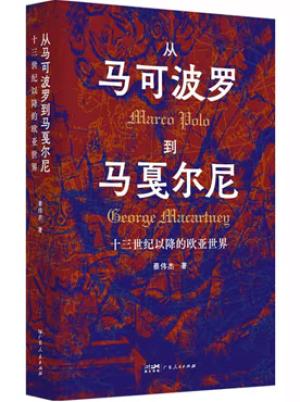新書推薦:

《
裘锡圭学术文集(全六卷)
》
售價:HK$
1078.0

《
从马可波罗到马戛尔尼:十三世纪以降的欧亚世界
》
售價:HK$
74.8

《
抗日战争时期中英借款交涉研究
》
售價:HK$
86.9

《
大学问·中国城市史研究系列 茶馆 天津工人 晚清中国城市的水与电 亦官亦商(套装共4册)
》
售價:HK$
389.4

《
索恩丛书·信仰与权力:阿拉伯世界的裂变与重生
》
售價:HK$
141.9

《
哲学之旅(第8版):一种互动性探究(最新完整版,2025中国-东盟影响力图书)
》
售價:HK$
164.8

《
何以为帝:雍正继位新探(清史泰斗冯尔康,从继位疑案读懂中国封建皇权,看清人性与制度的极致博弈)
》
售價:HK$
74.8

《
元照英美法词典(简装学生版)
》
售價:HK$
108.9
|
| 編輯推薦: |
思辨能力的高下将决定一个人学业的优劣、事业的成败乃至一个民族的兴衰。在此意义上,我向全国中小学教师、
高等学校教师和学生以及社会大众郑重推荐“思想者指南系列丛书”。相信该套丛书的普及阅读和学习运用,必将
有利于促进教育改革,提高人才培养质量,提升大众思辨能力,为创新型国家建设和社会文明进步作出深远的贡
献。(孙有中,教授,北京外国语大学副校长)
|
| 內容簡介: |
|
《像苏格拉底一样提问》是“思想者指南系列丛书”当中的一本,属于该系列下的“大众篇”,供广大读者使用。《像苏格拉底一样提问》包括五个部分以及三个附录,通过讲解以及举例,来帮助读者了解并学习苏格拉底提问的艺术。
|
| 關於作者: |
|
Richard Paul:思辨研究专家,国际思辨研究运动主要负责人,已发表200余篇与思辨研究相关的论文、出版25部论述思辨研究的著作。Linda Elder:教育心理学专家、思辨研究专家,在美国多所大学任教,主要教授课程为教育心理学、思辨能力培养;思辨研究协会会长、思辨中心执行主任。
|
| 目錄:
|
Letter to the Reader Letter to the Reader . . . . . . . . . . . . . . . . . vii
Introduction. . . . . . . . . . . . . . . . .1
Part One: A Taxonomy of Socratic Questions Based in Critical Thinking Concepts
Questions that Target the Parts of Thinking. . . . . . . . . . . . . . . . .5
Questions that Target the Quality of Reasoning. . . . . . . . . . . . . . . . .9
The Art of Socratic Questioning Checklist. . . . . . . . . . . . . . . . .12
Four Directions in Which to Pursue Thought. . . . . . . . . . . . . . . . . 16
Three Kinds of Questions. . . . . . . . . . . . . . . . .18
Asking One-System, No-System, and Conflicting-System Questions. . . . . . . . . . . . . . . .
.19
Questioning Questions: Identifying Prior Questions. . . . . . . . . . . . . . . . .23
Asking Complex Interdisciplinary Questions. . . . . . . . . . . . . . . . .25
Part Two: Socratic Questioning Transcripts
Transcript One: Exploring the Mind and How It Works Elementary School. . . . . . . . . . . . .
33
Transcript Two: Helping Students Organize Their Thoughts for Writing Middle School. . . . . .
41
Transcript Three: Helping Students Think Deeply About Basic Ideas High School. . . . . . . . .
45
Transcript Four: Helping Students Think Seriously About Complex Social Issues High School. . .
50
Part Three: The Mechanics of Socratic Questioning
Three Kinds of Socratic Discussion. . . . . . . . . . . . . . . . .56
Wondering Aloud About Truth and Meaning . . . . . . . . . . . . . . . . . 63
Sources of Student Belief. . . . . . . . . . . . . . . . .65
General Guidelines for Socratic Questioning. . . . . . . . . . . . . . . . .67
Part Four: The Role of Questions in Teaching, Thinking, and Learning
The Teacher as Questioner. . . . . . . . . . . . . . . . . 71
Understanding Content as Interrelated Systems with Real-Life Connections. . . . . . .
|
|









